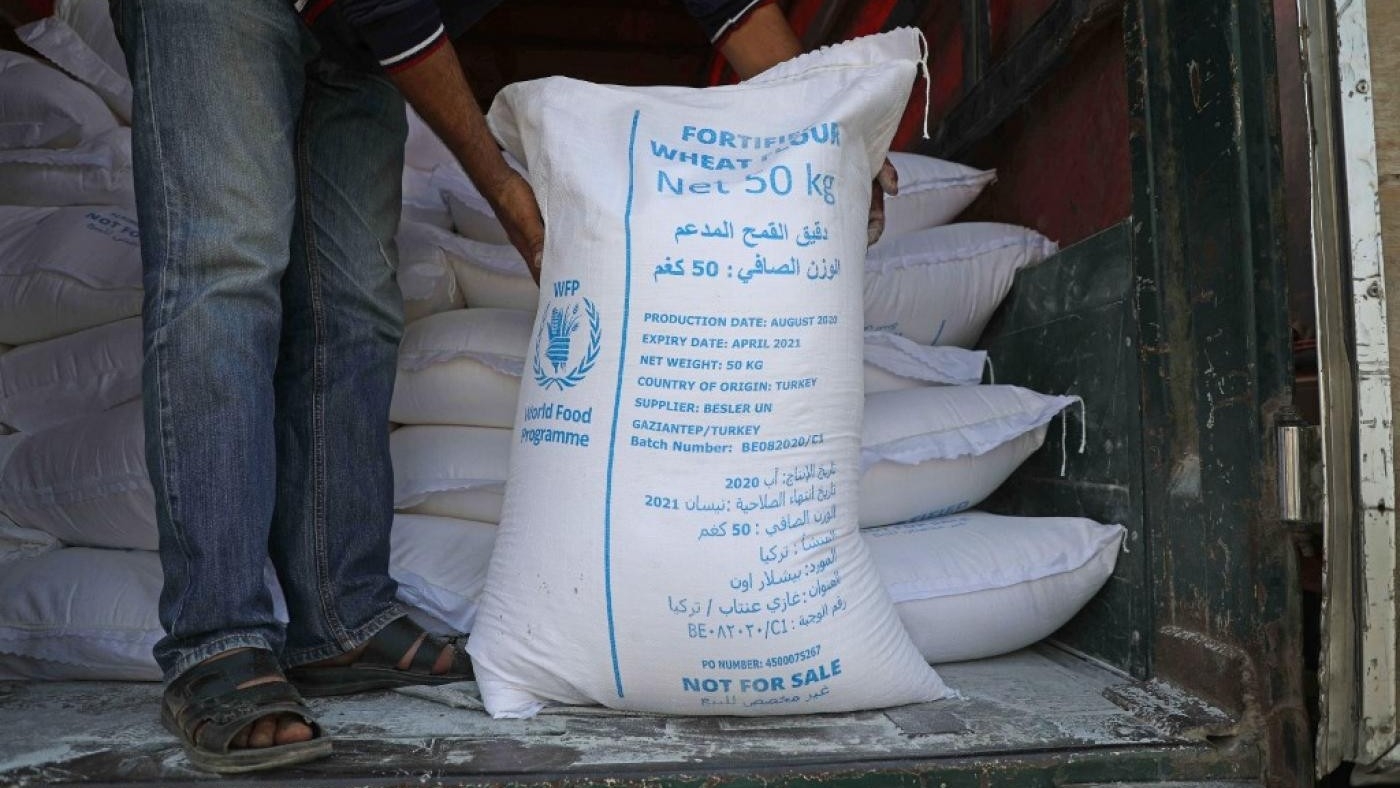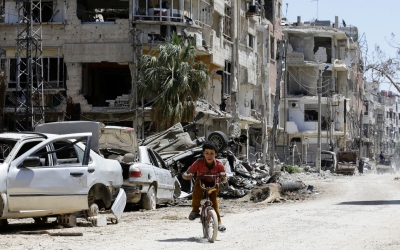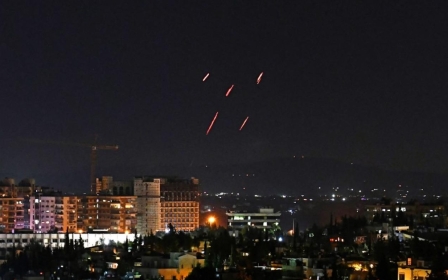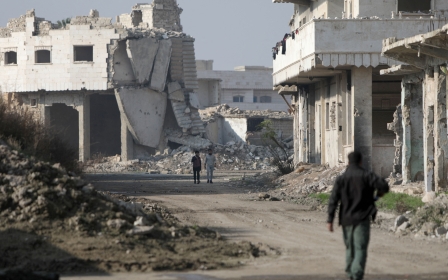Syria: UN will cut food aid for 2.5 million amid 'unprecedented funding crisis’

The UN has warned that due to an unprecedented funding crisis, it will be cutting food aid to at least 2.5 million Syrians.
More than 5.5 million Syrians rely on the UN World Food Programme (WFP) for their basic food needs.
The WFP is in the process of drawing up plans to prioritise the remaining three million Syrians who are unable to make it from one week to the next without food assistance.
The UN body warned that if it continued to provide aid to all the 5.5 million people in need it would run out of food completely by October.
“Instead of scaling up or even keeping pace with increasing needs, we’re facing the bleak scenario of taking assistance away from people, right when they need it the most,” said WFP Representative and Country Director in Syria, Kenn Crossley, in a statement.
New MEE newsletter: Jerusalem Dispatch
Sign up to get the latest insights and analysis on Israel-Palestine, alongside Turkey Unpacked and other MEE newsletters
Finding hard cash for Syrians amid the war in Ukraine, a growing humanitarian crisis in Sudan, and a long-simmering one in Yemen might be difficult.
The amount of money needed to feed Syrians alone is staggering, with the UN Secretary-General Antonio Guterres recently pleading for more money.
'Expect a high incidence of malnutrition from pregnant and lactating women and high rates of anaemia in women in general'
- Dr Mahmod Asaad, SAMS
“We are asking for $11.1 billion, our largest appeal worldwide. We have no time to spare,” he warned.
“There are nutritional supplies which are distributed exclusively by the WFP,” said Dr Mahmod Asaad, the nutritional officer at the Syrian American Medical Society (SAMS), speaking to Middle East Eye.
If there is a reduction in support then “we should expect a high incidence of malnutrition from pregnant and lactating women and high rates of anaemia in women in general, which is currently 53 percent and is classified as phase five which is very critical or catastrophic.
“High incidence of malnutrition in children and an increase in the incidence of children stunting, which currently reached 28.6 percent and is classified as phase four critical or severe," he added.
The announcement by the WFP to cut food aid comes as the EU is set to hold its seventh conference on "supporting the future of Syria and the region" in Brussels on June 14 for a two-day summit.
Perpetual state of emergency
Syrians are living in a “perpetual state of emergency,” said the WFP warning that after 12 years of war, a global pandemic, and massive displacement, ordinary people have nowhere to turn to for their basic needs other than the UN.
The war in Ukraine has pushed up the price of food and fuel to unprecedented levels over the last year, the body warned.
"Further reductions in ration size are impossible. Our only solution is to reduce the number of recipients. The people we serve have endured the ravages of conflict, fleeing their homes, losing family members and their livelihoods. Without our assistance, their hardships will only intensify,” added Crossley.
On Monday the Jordanian Foreign Minister Ayman Safadi urged the UN to maintain their services, warning that host countries alone could not bear the burden of feeding Syrians.
"There has been a noticeable retreat in the international support for the refugees. We hope that this conference will produce practical steps to provide support," said Safadi ahead of the EU summit on Syrians.
The UN agency last year cut food stipends to hundreds of thousands of Syrian refugees in Jordan by a third, partly due to aid requirements from the war in Ukraine,
According to the UN, there are 760,000 registered Syrian refugees in Jordan.
Without adequate and timely food assistance, Syria's next generation and its entire future are at risk warned Crossley from the WFP.
“We have the capacity and solutions to reduce dependency on humanitarian assistance and make a lasting difference in people’s lives,” Crossley added.
Middle East Eye delivers independent and unrivalled coverage and analysis of the Middle East, North Africa and beyond. To learn more about republishing this content and the associated fees, please fill out this form. More about MEE can be found here.





